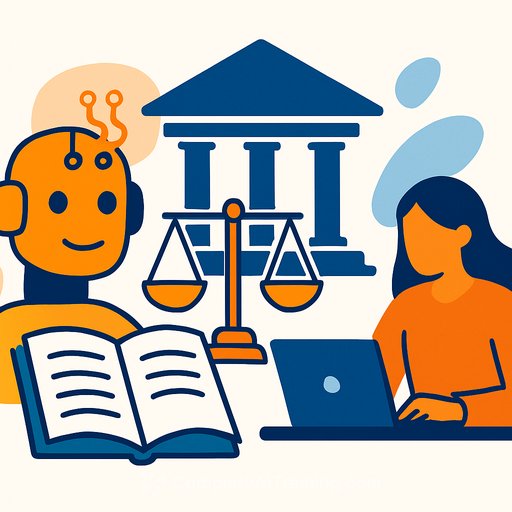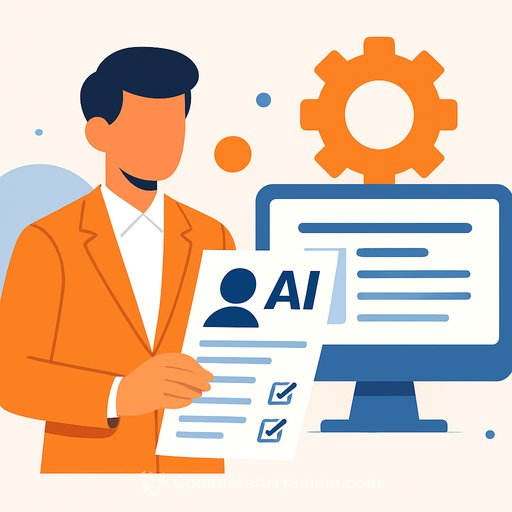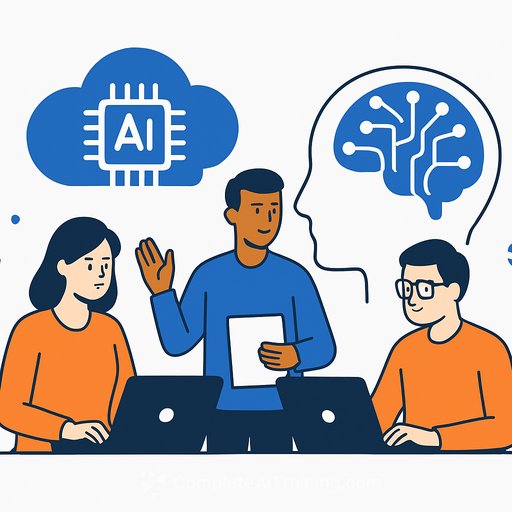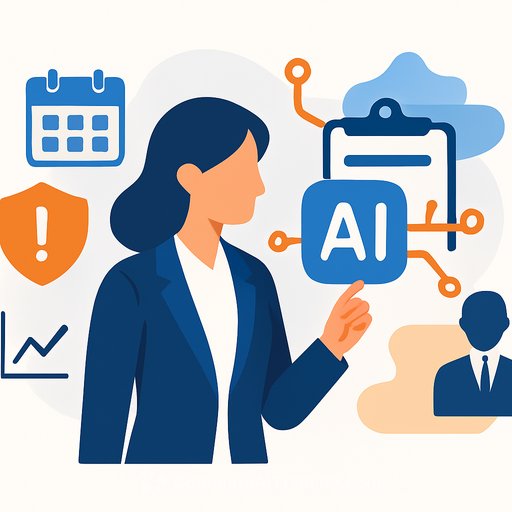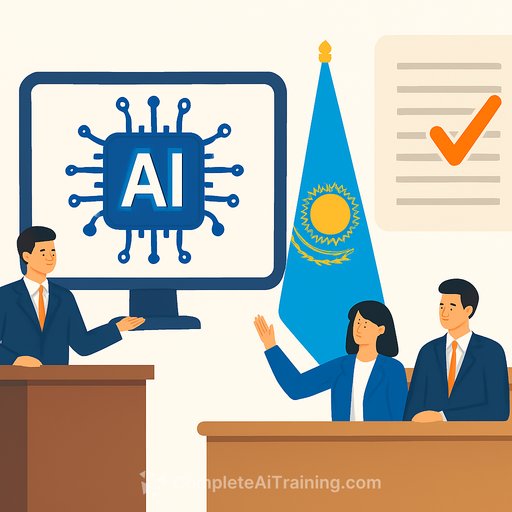The Role of AI in Transforming Legal Education in India
Artificial Intelligence (AI) is changing how tasks are automated and how solutions are delivered by analyzing large datasets. India is positioned to benefit significantly from AI advancements, applying these technologies to drive growth in various sectors, including legal education.
Legal education is crucial for promoting social justice, equity, and democracy. It equips individuals with the skills needed to operate in a society governed by laws. To meet these goals, the education system must prepare lawyers capable of addressing the evolving needs of Indian society, especially amid challenges like globalization, rising costs, and judicial delays.
Legal Education and National Priorities
India’s commitment to Sustainable Development Goal 4 (SDG4) emphasizes accessible and quality education for all. This aligns with the National Education Policy 2020, which seeks to modernize legal education by incorporating global best practices. Adopting new methods can improve access to justice and uphold it as a fundamental right.
Since independence, India’s legal framework has supported social reforms, such as the Dowry Prohibition Act (1961) and the Hindu Marriage Act (1955). Today, the focus remains on building a just society through effective education and law enforcement.
Challenges in the Indian Legal System
The Indian judiciary faces a backlog of cases, corruption, and slow resolution times. The Supreme Court has stressed the need to enhance legal education and adopt AI technologies to address these issues. Traditional teaching methods in law schools emphasize critical thinking, legal writing, oral advocacy, and ethics but often fall short of imparting practical skills needed today.
Modern lawyers must combine analytical thinking with proficiency in legal technologies such as document automation and predictive analytics. They need adaptability and the ability to collaborate across disciplines, meeting client expectations for strategic and tech-savvy legal advice.
Integrating AI in Legal Education
Legal educators must blend AI literacy with ethical and practical training. This equips students to use AI tools effectively and critically assess their outputs. Curricula should become more flexible to address the increasing complexity of legal issues in a digital and globalized environment.
Several Indian law schools, including National Law University Bengaluru, OP Jindal University, and the Rajiv Gandhi School of Intellectual Property Rights at IIT Kharagpur, have introduced AI-focused courses. These programs teach students how to apply AI in legal practice, enhancing job security and competitiveness.
Law firms now expect younger associates to be comfortable with generative AI tools. While AI won’t replace lawyers, those who integrate AI into their practice will have an advantage. Lawyers don’t need coding expertise but should understand AI platforms relevant to contract automation, legal research, and compliance monitoring.
Benefits of AI in Legal Practice
- Speeds up tasks like document review and data analysis.
- Automates routine judicial work, freeing judges for complex cases.
- Enables customized legal solutions and diverse interpretations across jurisdictions.
Obstacles to AI Adoption in Legal Education
Many law schools in India face outdated curricula and lack faculty skilled in data science, machine learning, or AI. Resistance to moving away from traditional teaching methods slows progress.
The Bar Council of India (BCI), which regulates legal education, sets standards for curricula, infrastructure, and faculty qualifications. While this standardization ensures quality, it limits innovation and flexibility needed to embrace new technologies.
Though the BCI has encouraged including subjects like blockchain, cybersecurity, robotics, and AI, many institutions hesitate due to the already heavy curriculum and additional workload. Even schools with access to labs struggle to provide up-to-date AI learning materials because of insufficient staff expertise.
Ensuring Digital Inclusion
Digital inclusion is essential to ensure all students have equal access to AI tools and resources, regardless of socioeconomic background or location. Students in rural or semi-urban areas often lack reliable internet, modern devices, or exposure to AI resources compared to their urban peers.
Language barriers also limit access since most AI content is in English, making it harder for non-English speakers to benefit fully.
Faculty Training and Curriculum Development
Updating curricula to include AI subjects must be paired with faculty training. Educators need to confidently teach AI concepts and applications to prepare students effectively. This approach enhances learning outcomes and prepares future lawyers to meet professional demands.
For those interested in expanding their AI skills relevant to the legal field, platforms like Complete AI Training offer courses on AI tools and applications suited for professionals.
Conclusion
Integrating AI into legal education is vital for producing lawyers who can deliver faster, more accurate, and accessible legal services. Updating curricula, investing in faculty development, and ensuring digital access are key steps toward this goal. Embracing AI tools will help legal professionals stay relevant and effective in a changing landscape.
Your membership also unlocks:

